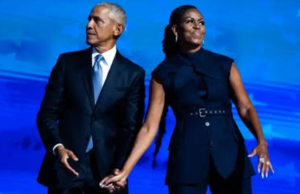If Your Apology Start With Any Of These 10 Phrases, You Fail To Heal Your Relationship
Apologizing can renew trust, soothe hurt feelings, and return the lifeblood to a damaged relationship. But when someone hurts you and gives you a fake or insincere apology, it only makes things worse.
Here are 10 of the most common apologies that will fail to heal your relationship

1. “I’m sorry if…”
This is a conditional apology. It falls short of a full apology because the person apologizing believed he/she didn’t do anything wrong, but you only felt offended by the situation.
Examples:
I’m sorry if I did anything wrong.
I’m sorry if you were offended.
2. “I’m sorry, but…”
This is an excuse-making apology and does nothing to heal the wounds caused.
Examples:
I’m sorry, but most other people wouldn’t have overreacted as you did.
I’m sorry, but other people thought it was funny.
I’m sorry, but you started it.
I’m sorry, but I couldn’t help it.
I’m sorry, but there was truth to what I said.
I’m sorry, but you can’t expect perfection.
3. “I’ve already said/done…”
This deja-vu apology cheapens whatever is said by implying that there is nothing left to apologize for.
Examples:
I already said I was sorry.
I’ve already apologized for that a million times.
4. “I regret…”
This sidestepping apology equates regret with apologizing. There is no ownership of their part in the situation.
Examples:
I regret you felt upset
I regret that mistakes were made
5. “I was just…”
This is a justifying apology. It seeks to argue that hurtful behavior was OK because it was harmless or for a good cause.
Examples:
I was just kidding.
I was just trying to help.
I was only trying to calm you down.
I was trying to get you to see the other side.
I was just playing devil’s advocate.
6. “I know I…” or “You know I…”
This whitewashing apology is an effort to minimize what happened without owning any harmful effects on you or others. The whitewash may seem self-effacing, but on its own, it contains no apology.
Examples:
I know I shouldn’t have done that.
I know I probably should have asked you first.
I know I can be a bull in a china shop sometimes.
7. “I guess…”
This is a phantom apology. It hints at the need for an apology but never gives one.
Examples:
I guess I owe you an apology.
I guess I should say I’m sorry.
8. “So-and-So told me to apologize.”
This is a not-my-apology apology. The person is saying he or she is apologizing only because someone else suggested it. The implication is that it would have never happened in the first place.
Examples:
Your mother told me to apologize to you.
My friend said I should tell you I’m sorry.
9. “I’ll apologize if…”
This pay-to-play apology is not a clean, freely offered apology. Instead, you have to pay to get it.
Examples:
I’ll only apologize if you apologize.
I’ll apologize if you agree never to bring it up again.
I’ll say I’m sorry if you’ll just stop talking about it.
10. “Fine! I’m sorry, OK?!”
This is a bullying apology. Either in words or tone, you are given a grudging “I’m sorry,” but it doesn’t feel like an apology. It may even feel like a threat.
Examples:
OK, enough already. I said, I’m sorry!
Give me a break, I’m sorry, all right?
Source: anaedoonline.ng




















